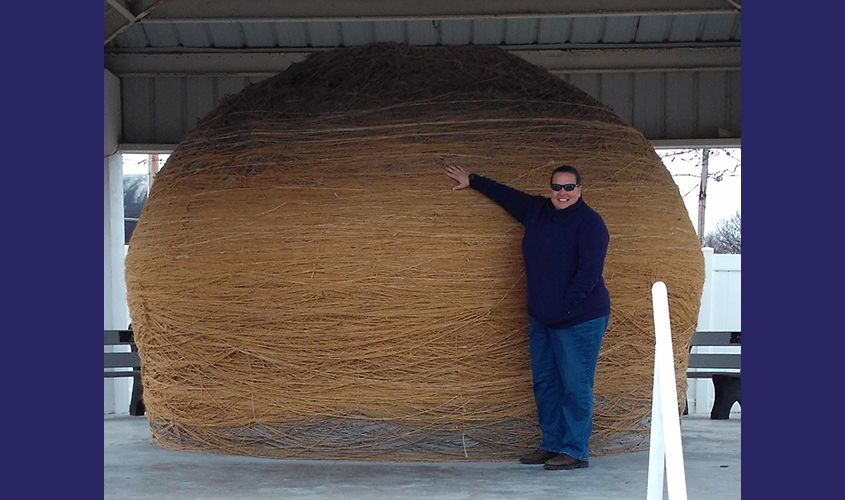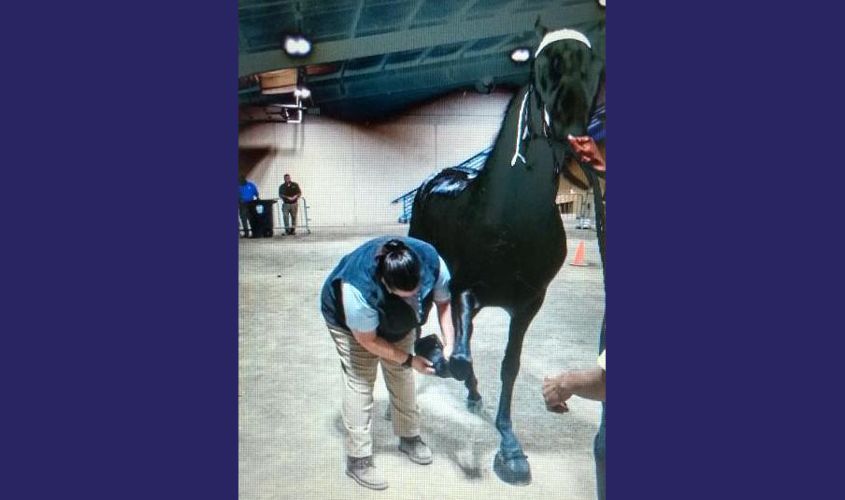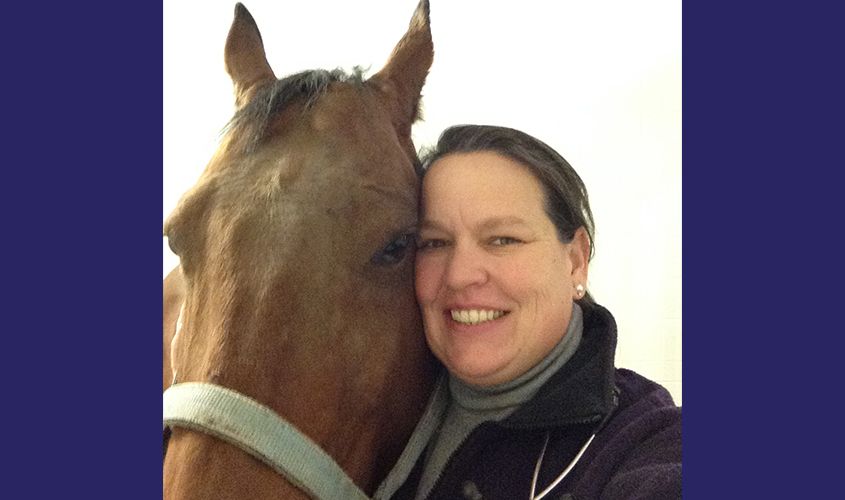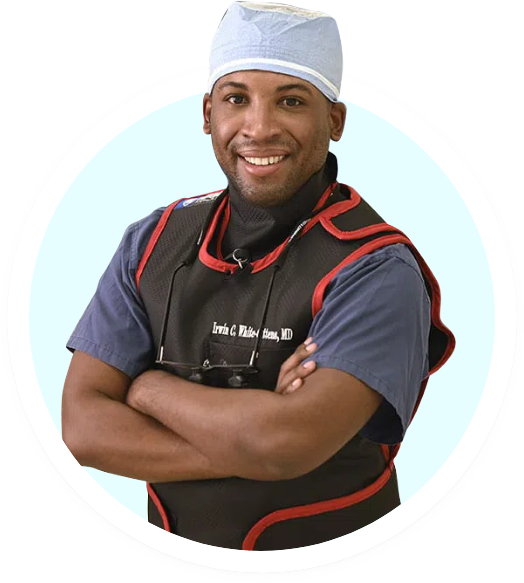As a veterinary medical officer with the Animal Care unit of the US Department of Agriculture’s (USDA) Animal and Plant Health Inspection Service, St. George’s University graduate Autumn Unck, DVM ’15, has a wide range of responsibilities that affect both humans and animals. And she loves what she does.
“My job is so diverse—every day is different—and that really helps satisfy my passion for public service,” Dr. Unck said. “That’s what got me into this. I have a passion for animals, public service, and giving back. The job incorporates everything I love.”
The Animal Care unit employs around 200 civil servants located around the US, including veterinary medical officers and specialists who have expertise with marine mammals, exotic cats, and primates. The unit conducts inspections of approximately 8,000 licensed or registered facilities annually under the Animal Welfare Act and each year it inspects over 1,500 horses at shows and other events for compliance with the Horse Protection Act.
As a field veterinarian, Dr. Unck performs inspections and assessments of the overall treatment of animals at various research facilities, zoos, licensed breeding facilities, and educational exhibitors, among other places, in her territory of Nebraska, Iowa, and Missouri. She is also responsible for evaluating the qualifications of facility professionals and to review protocols to ensure proper use and care of animals in research facilities.
“When it comes to research facilities and zoos—some of that is very controversial in the public’s eyes because they don’t understand what’s going on there. By being present and speaking to the teams that work there, I know these facilities have phenomenal vets and caretakers,” Dr. Unck said. “The biggest misconception is that the animals aren’t being taken care of. That couldn’t be further from the truth. We are really an advocate of making sure that that public is educated when it comes to these facilities.”


Dr. Unck’s other responsibilities include assisting with the implementation of the Horse Protection Act, by ensuring that horse shows safeguard against unfair competition. She is also part of the team that travels across the country to help out when there is a natural disaster or disease outbreak, such as the Newcastle Disease outbreak in 2016 in several counties in Southern California.
Following a natural disaster or outbreak, “being able to step in and provide some type of comfort or relief [to farmers], by letting them know that someone cares in their time of need” is particularly gratifying, she said.
BEING A VET DURING COVID-19

Dr. Unck acknowledged that while travel for her job has been temporarily curtailed as a result of the COVID-19 pandemic, maintaining relationships, such as with the regulated facilities and horse owners/exhibitors is imperative.
“We are constantly checking in to see if they have the support they need, or if they have questions or concerns,” she said.
PATHWAY TO VET MEDICINE

Dr. Unck grew in up Southern California and fell in love with animals at an early age. She clearly remembers visiting San Diego’s Sea World, at which she was invited to pet the famous killer whale, Shamu. “To see the huge massive animal diving and being entertaining, yet so delicate and graceful in front of me—at one point he looked at me and we locked eyes and that’s when I became hooked,” said Dr. Unck, who is the proud fur mom of three rescue dogs, and a donkey she brought back from the Caribbean.
Yet before setting her career sights on vet medicine, Dr. Unck said she considered entering the military or public service. “I couldn’t figure out what I wanted to do. I was graduating from undergrad and vet school when the US was sending people overseas,” she said.
Although Dr. Unck ultimately ended up in a career she enjoys, her path there was a bit winding. She transferred to SGU after initially starting her veterinary education at a different Caribbean school. It proved to be a positive move. Dr. Unck fondly recalls her interactions with SGU instructors and noted the advantages to leaving the US, including the ability to gain exposure to different experiences they wouldn’t normally have. Despite Grenada’s small size, she had the chance to work closely with a variety of animals and farmers, particularly when it came to receiving experience in large animal medicine.
Dr. Unck was also sure to get involved in a myriad of student-led clubs and organizations and to put in time at the University’s Large Animal Research Facility.
“Going to SGU was best of both worlds,” she said. “With veterinary schools in the states, you just stay at one school throughout your education. I had amazing didactic lessons in Grenada and then another year of clinical education at Cornell University.”
Finding a career opportunity within the USDA serves her desire to go into public service.
“I’m helping the helpless. Animals can’t tell you what’s wrong and many animal caretakers are not trained veterinarians, so they reach out to us for help,” she said. “It’s an awesome and humbling position to be in and I wouldn’t change it for the world. SGU made that happen.”

